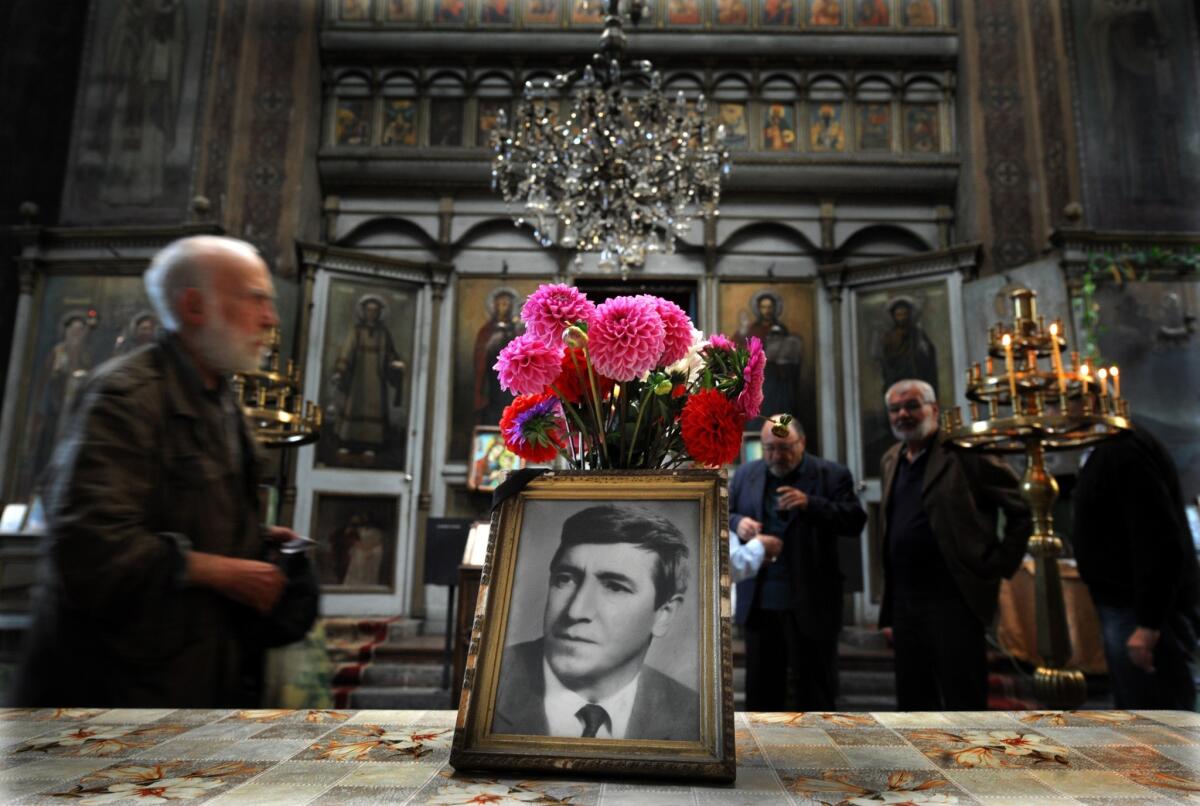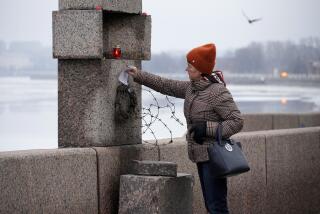Case closed on 1978 poison umbrella killing of Bulgarian defector

No one has ever been brought to justice for one of the most nefarious killings of the Cold War era, the 1978 poisoning of Bulgarian defector Georgy Markov with a ricin pellet jabbed into his leg with the tip of an umbrella.
But there has been little mystery about who was behind the 49-year-old dissident journalist’s slaying as he made his way to a London bus stop. For more than 20 years, former KGB officials and investigative journalists have said the operation to silence a prominent communist critic was a collaboration of Soviet and Bulgarian secret services.
Post-communist Bulgarian news media have long pointed to indications of high-level involvement in Markov’s death, including the fact that the attack occurred on Sept. 7, the birthday of Bulgarian Communist leader Todor Zhivkov.
“The murder was supposed to serve as some sort of a gift to Zhivkov,” the Sofia online news agency Novinite.com commented Thursday after the officially unsolved Markov case was closed.
Zhivkov was Eastern Europe’s longest-ruling communist when he was forced to resign after Bulgarians joined the pro-democracy revolutions that swept the region at the end of 1989. But a little-reformed Bulgarian Socialist Party succeeded the Communists in free elections in 1990, leaving Zhivkov allies in positions of authority over the secret service, with little incentive to pursue the investigation of the dissident’s slaying.
In “Kill the Wanderer,” a 2005 book recounting his yearslong investigation of the Markov case, Bulgarian journalist Hristo Hristov detailed the findings of his review of nearly 100 once-secret files of the State Security Services. He concluded that Soviet KGB agents hatched the plot to kill Markov in cooperation with a Bulgarian security agent codenamed “Piccadilly.”
Markov died in a London hospital on Sept. 11, 1978, four days after the poison pellet was stabbed into his leg. The Bulgarian investigation was closed Thursday, a day after the country’s statute of limitations on murder was reached.
“The investigation was launched 35 years ago, which is the maximum period. It cannot be extended since no concrete action -- arrest order, detention or accusations -- have been undertaken,” Rumiana Arnaudova, a spokeswoman with the Bulgarian state prosecutors’ office, told Novinite.
The news agency also said in its report that it wasn’t the umbrella found at the scene near London’s Waterloo Bridge that delivered the poison. It was fired into Markov’s thigh by an “adapted pen,” Novinite stated, and the umbrella dropped to cause a distraction.
In the years after his 1969 defection, Markov was one of the harshest and most influential critics of the communist-ruled Soviet bloc. His weekly broadcasts on Radio Free Europe and the BBC disclosed rights abuses and the harsh conditions in which most people in the communist empire lived.
Former KGB agent Oleg Kalugin said in 1992 that Bulgaria had sought the Soviet intelligence service’s help in eliminating Markov. Bulgarian news media also have reported that at least two attempts to kill the defector failed before agents succeeded in delivering the fatal ricin pellet.
The BBC and the London 24 news agency noted that the London Metropolitan Police inquiry on Markov’s death remains open, as Britain doesn’t have a statute of limitations on murder.
Bulgarian chief prosecutor Sotir Tsatsarov was quoted by the Associated Press in Sofia as saying his office was ready to help British authorities with the case in the event of new evidence or developments.
ALSO:Egypt extends state of emergency for two months
Israel also facing questions about chemical weapons
Prince William to leave the military, become full-time royal
Twitter: @cjwilliamslat
More to Read
Start your day right
Sign up for Essential California for news, features and recommendations from the L.A. Times and beyond in your inbox six days a week.
You may occasionally receive promotional content from the Los Angeles Times.







